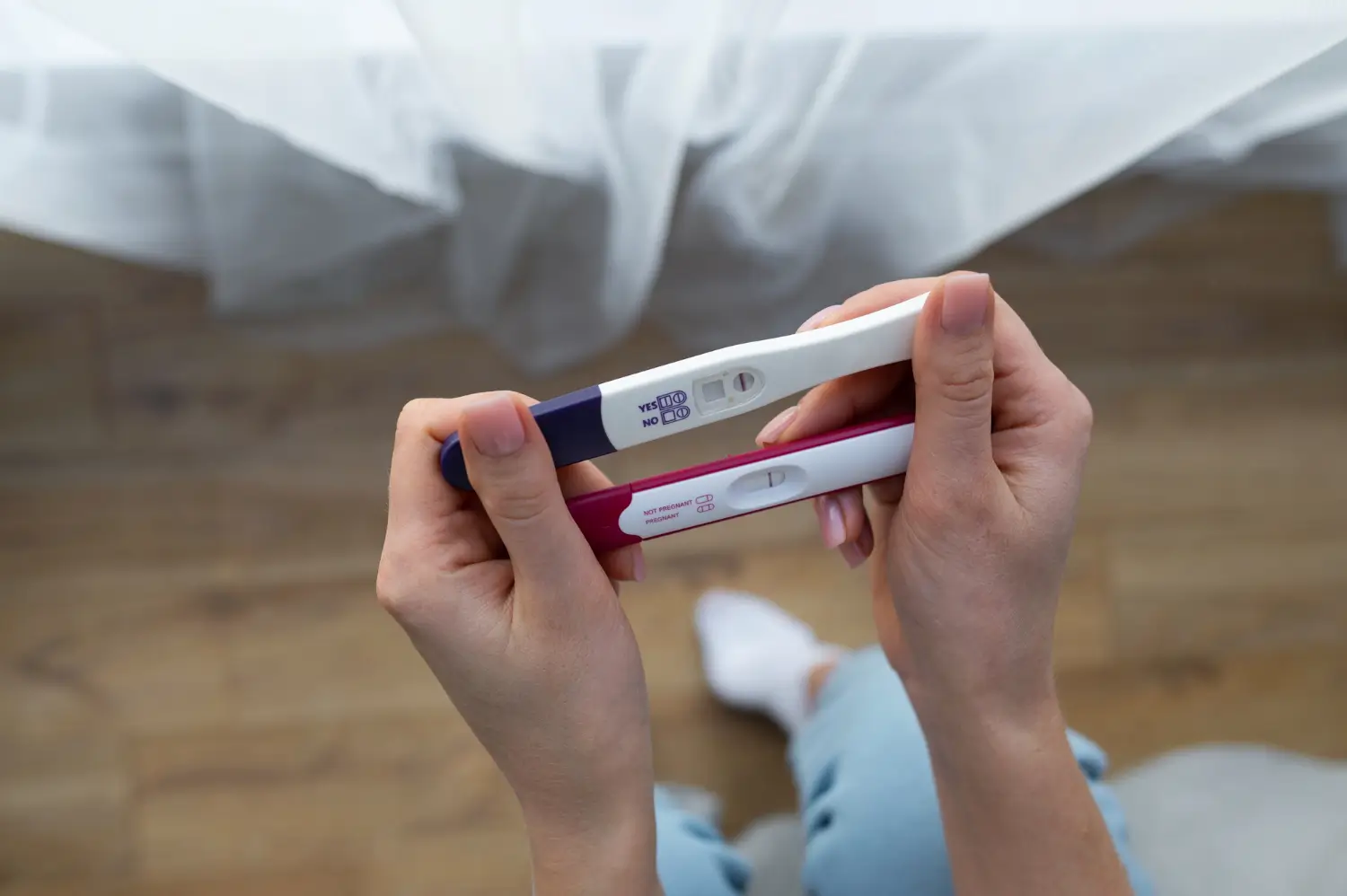Did you know that self-administered injectable birth control is linked to higher long-term use? Studies show that individuals who administer their own injections experience a 27% increase in adherence over 12 months, resulting in improved continuation rates compared to those who rely on provider-administered injections. This makes injectable contraceptives a preferred choice for many, offering high efficacy and convenience in a reliable form of birth control.
One of the most commonly used options is Depo-Provera, which contains medroxyprogesterone acetate (MPA) as its active ingredient. This synthetic progestin works by suppressing ovulation, thickening cervical mucus, and altering the uterine lining, effectively preventing pregnancy. Available in intramuscular (IM) and subcutaneous (SubQ) formulations, Depo-Provera offers distinct benefits in absorption and administration.
In this article, we’ll dive into how effective the Depo injection is, exploring its mechanisms of action, factors influencing its effectiveness, and best practices for maintaining its contraceptive reliability.
Key Takeaways
- Depo-Provera is a highly effective contraceptive injection that, when used correctly, has a failure rate of less than 1% in perfect use.
- In typical use, where injections are missed or delayed, the effectiveness drops to 94%, so timely administration is critical for consistent pregnancy prevention.
- The injection works through three main mechanisms: suppressing ovulation, thickening cervical mucus, and altering the uterine lining, ensuring continuous contraceptive protection.
- Depo-Provera is available in intramuscular (IM) and subcutaneous (SubQ) formulations, each offering unique benefits in terms of administration and side effects.
- Factors like missed appointments, medication interference, body weight, and lifestyle habits can impact Depo-Provera’s effectiveness, so it’s essential to monitor and adjust as needed.
- If a dose is missed or delayed beyond 15 weeks, backup contraception should be used, and consultation with a healthcare provider is advised.
About: Medical Spa RX provides medical practices with premium products at the best prices. If you’re looking to buy Depo-Provera for your practice, the sales representatives at Medical Spa RX can give you guidance.
Clinical Efficacy Rates: Perfect Use vs Typical Use
Depo-Provera is a highly effective contraceptive when administered correctly. In perfect use, where injections are received exactly on schedule, the failure rate is less than 1%, making it one of the most reliable birth control methods. However, in typical use, where some users may delay or miss their shots, effectiveness drops to 94%, meaning about 6 in 100 users may become pregnant annually.

Several factors can influence typical use, including missed appointments, delayed injections, and individual health conditions. To maximize effectiveness, users should follow the Depo shot schedule, which involves receiving injections every 12-13 weeks.
In case a shot is missed or delayed, it is crucial to use backup contraception and consult a healthcare provider to ensure continued protection, guidance, and proper information on how to maintain consistent effectiveness.
How Depo-Provera Prevents Pregnancy Mechanistically
Depo-Provera contains medroxyprogesterone acetate, a synthetic progestin that prevents pregnancy through three primary mechanisms:
- Suppressing Ovulation: This prevents the release of an egg, eliminating the chance for fertilization to occur.
- Thickening Cervical Mucus: It creates a barrier that blocks sperm from reaching the egg, making conception more difficult.
- Altering the Uterine Lining: This makes the uterine lining unsuitable for implantation, further reducing the likelihood of pregnancy.
These combined effects make Depo-Provera one of the most reliable contraceptive options when used consistently. To maintain effectiveness, injections must be administered according to the standard schedule of every 12-13 weeks, ensuring continuous hormonal protection. Proper use and timely doses significantly reduce the risk of unintended pregnancies.
Factors That Influence Depo-Provera Effectiveness
Several factors can impact the effectiveness of Depo-Provera. Understanding these influences helps ensure consistent contraceptive protection and allows users to make informed choices with their healthcare provider.

Several factors can impact the effectiveness of Depo injections, and understanding the information on these influences is key to ensuring consistent contraceptive protection. Here are the primary factors that can affect how well Depo-Provera works:
- Timing of Injections: Delayed or missed shots can reduce protection and increase the risk of pregnancy.
- Certain Medications: Some drugs, like antibiotics, antifungals, and seizure medications, may interfere with the hormone levels in Depo-Provera, affecting its effectiveness.
- Body Weight and Metabolism: Individual differences in how the body absorbs and processes hormones can impact the duration of the shot’s effectiveness.
- Underlying Health Conditions: Health conditions that affect hormone regulation, such as thyroid disorders, may alter Depo-Provera’s efficacy.
- Lifestyle Factors: Smoking and heavy alcohol consumption can influence how the body metabolizes the hormone, potentially affecting the shot’s efficacy.
For optimal results, it is crucial to receive Depo injections on schedule and consult a healthcare provider if you are taking medications or have health concerns that might interfere with Depo-Provera’s effectiveness.
Backup Methods and Reinforcing Injection Timing
Maintaining timely Depo injections is crucial for ensuring continuous pregnancy prevention. If doses are delayed or missed, effectiveness can drop, increasing the risk of unintended pregnancy. Below are key strategies to help reinforce proper Depo contraception injection timing and implement backup methods when necessary:
- Get Injections on Time: Schedule each shot every 12-13 weeks to maintain continuous protection and prevent gaps in efficacy.
- Use Backup Contraception: If an injection is missed or delayed beyond 15 weeks, use condoms or other methods to prevent pregnancy until the next dose is administered.
- Set Reminders: Use apps, alarms, or calendar alerts to track your injection dates and avoid missed doses.
- Consult a Doctor: Speak with a healthcare provider if you’re taking medications that may interfere with Depo-Provera or if you experience any side effects.
- Consider Emergency Contraception: If unprotected sex occurs after a missed shot, take emergency contraception to reduce pregnancy risk.
Following these steps helps ensure continuous protection while minimizing the risk of contraceptive injection failure.
Conclusion
Depo-Provera is a highly effective contraceptive when used correctly, with a failure rate of less than 1% in perfect use. However, timely injections and awareness of influencing factors are crucial to maintaining its reliability. Users should schedule injections on time, use backup contraception when necessary, and consult healthcare providers for personalized guidance on maintaining effectiveness.
By staying on track with their schedule, individuals can enjoy the benefits of long-term contraception with minimal interruption to their lifestyle, all while ensuring optimal safety and effectiveness.
FAQs
1. How long does Depo-Provera last?
Depo-Provera provides contraceptive protection for 12 to 13 weeks after each injection. It is essential to receive the next dose on time to maintain effectiveness.
2. Can Depo-Provera affect fertility?
Fertility may take six to twelve months to return after stopping Depo-Provera. Some individuals may experience a longer delay before ovulation resumes.
3. What are the common side effects of Depo-Provera?
The most common side effects include irregular menstrual bleeding, weight gain, mood changes, headaches, and decreased bone density with long-term use.
4. Does Depo-Provera protect against sexually transmitted infections (STIs)?
No, Depo-Provera does not protect against sexually transmitted infections (STIs). It is recommended to use condoms or other barrier methods for STI prevention.
5. What should I do if I miss a Depo-Provera shot?
If more than 15 weeks have passed since your last injection, you should use backup contraception, such as condoms, and consult a healthcare provider before resuming injections.
6. Is Depo-Provera safe for long-term use?
Depo-Provera is generally safe for long-term use, but it may reduce bone density over time. Doctors often recommend calcium and vitamin D supplements, as well as regular bone health evaluations, for individuals who use these supplements long-term.
7. Who should avoid using Depo-Provera?
Depo-Provera may not be suitable for individuals with osteoporosis risk, unexplained vaginal bleeding, breast cancer, liver disease, or a history of blood clots.
References
Kennedy CE, Yeh PT, Gaffield ML, Brady M, Narasimhan M. Self-administration of injectable contraception: a systematic review and meta-analysis. BMJ Glob Health. 2019;4(2):e001350. Published 2019 Apr 2. doi:10.1136/bmjgh-2018-001350
Depo-Provera injection: Uses, dosage, side effects. Drugs.com. https://www.drugs.com/depo-provera.html
Depo-Provera (birth control shot). Mayo Clinic. https://www.mayoclinic.org/tests-procedures/depo-provera/about/pac-20392204





















